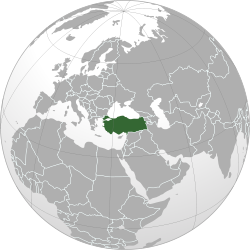Turkey: Calls To End Impunity For State Killings, Disappearances
The Turkish government should take action to address statutory time limits, witness intimidation, and other obstacles to the prosecution of members of security forces and public officials for killings, disappearances, and torture, Human Rights Watch said in a report released today.
Those responsible for the serious human rights violations committed after the September 1980 military coup and against the Kurdish civilian population in the 1990s, during the conflict between the state and the armed outlawed Kurdistan Workers’ Party (PKK), have never been held to account.

Hundreds of deaths in custody and summary executions by the security forces risk being deemed time-barred for prosecution because of a 20-year limitation on murder investigations contained in Turkey’s previous penal code. Thousands more state-perpetrated killings of Kurds from the early 1990s could be similarly excluded from prosecution and trial in the coming three years.
“Old laws that curtail investigations into serious human rights abuses in Turkey have allowed the security forces and public officials to get away with murder and torture,” said Emma Sinclair-Webb, senior Turkey researcher at Human Rights Watch. “It is vital that Turkish authorities act now to ensure there are no time bars on victims getting justice.”
The 67-page report “Time for Justice: Ending Impunity for Killings and Disappearances in 1990s Turkey” looks at the lessons on obstacles to accountability from the ongoing trial of retired Colonel Cemal Temizöz and six others for the murder and disappearance of 20 men and boys between 1993 and 1995. It is the first such trial of a senior member of the gendarmerie for serious human rights violations committed in the course of the conflict between the state and the PKK.
The report builds on interviews with 55 individuals in Şırnak province, whose relatives were murdered or disappeared by suspected state perpetrators in the early 1990s.
Relatives of victims repeatedly told Human Rights Watch that they wanted to see perpetrators brought to trial for the murders and disappearances of their loved ones. Harun Padır was 17 years old in 1994 when security forces detained him with his father İzzet Padır and uncle Abdullah Özdemir, who were never seen again. He expressed a sentiment shared by all the relatives of the victims Human Rights Watch interviewed for the report: “For us compensation means nothing. We just want justice.”
Human Rights Watch’s interviews and the Diyarbakır trial highlight the climate of fear among relatives of victims that prevailed in the southeast region until very recently, compounded by a complete absence of effective investigation of killings and disappearances in the region at the time and subsequently.
